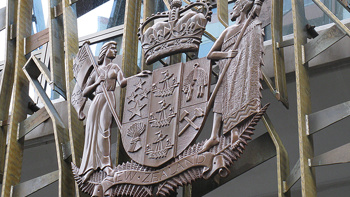New Zealand should expunge minor cannabis convictions and create a legal and responsible market for the drug, a new report from The Helen Clark Foundation recommends.
It urges voters should tick "Yes" to cannabis legalisation and regulation in next year's referendum.
Speaking with Mike Hosking on Newstalk ZB this morning, Clark – a former Prime Minister – said New Zealand needed to "face reality" and properly regulate the cannabis market in New Zealand.
"Get some of the facts out on the table, rather than having myths dominate the debate."
She said up to 80 per cent of Kiwis will use cannabis at some point in their lives.
"They know their hair doesn't go green and their teeth don't fall out – it's significantly less harmful than either tobacco or alcohol."
Since leaving the UN, Clark said she has been very active on the global commission on drug policy.
Although she does not promote the use of cannabis, she said a full-on ban has been ineffective and a regulated market in New Zealand is needed.
But it would need to be a "distinctively Kiwi solution".
"Our solution would be to be much more regulated than places like Colorado because of our experiences with tobacco and alcohol.
"You don't want to create another big tobacco and big alcohol [industry] that's going to promote things that obviously have some potential for harm."
The regulations she proposed include a limit on adverting, age limits and regulating the contents of the cannabis.
Clark told Stuff that Kiwis would continue to use cannabis whatever the law.
"Isn't this a waste of the justice system's time and money? Haven't the police got better things to do? Aren't we better to face the reality that 80 per cent of Kiwis are going to try this at some point in their lives?"
She was not a supporter of cannabis but said continued prohibition only added further harm.
Foundation executive director, and report co-author, Kathy Errington said she hoped the report will encourage debate.
"Our analysis argues that the disproportionately adverse effects of current policies justify putting in place legislation and effective regulation.
"Cannabis should be treated as a health and social issue, not a criminal one. The status quo is exacerbating its harm."
Errington said the current prohibition-based policy approaches had not eradicated cannabis consumption and supply.
Criminalisation was an inappropriate use of justice system resources and there was significant evidence that it was profoundly unjust to Māori, she said.
Errington said cannabis use in New Zealand is a reality "and the results of our current policy approach damage our health, worsen social equity and drive crime".
"Our answer is that we should move to a health-based approach with robust regulation, effective public health education and adequate service provision," Errington said.
"The current approach to cannabis inflicts excessive punishment on those who face prosecution who, in turn, are disproportionately Māori. Māori aged 17 to 25 accounts for 37 per cent of all convictions for drug possession.
"The legal prohibition on cannabis also drives people towards more potent and riskier substances," she said.
In addition to encouraging New Zealanders to vote 'Yes' in the 2020 cannabis referendum, the report recommends that the New Zealand Government should:
• Expunge prior minor cannabis offences from the record and remove past convictions for supply where there is no compounding factor associated with the conviction, such as firearm use or violence;
• Legislate for the regulation of, and access to, a legal cannabis market. Models from both Uruguay and North America should be seriously studied;
• Develop a structure for a legal market which prevents and/or discourages the emergence of large, commercial, for-profit cannabis producers and retailers;
• Ensure that the needs of the individuals and communities most affected by the current policy of prohibition on cannabis use are carefully considered when implementing and monitoring the legal market, and that these communities have equitable access to become producers and retailers within the legal market.
Take your Radio, Podcasts and Music with you









